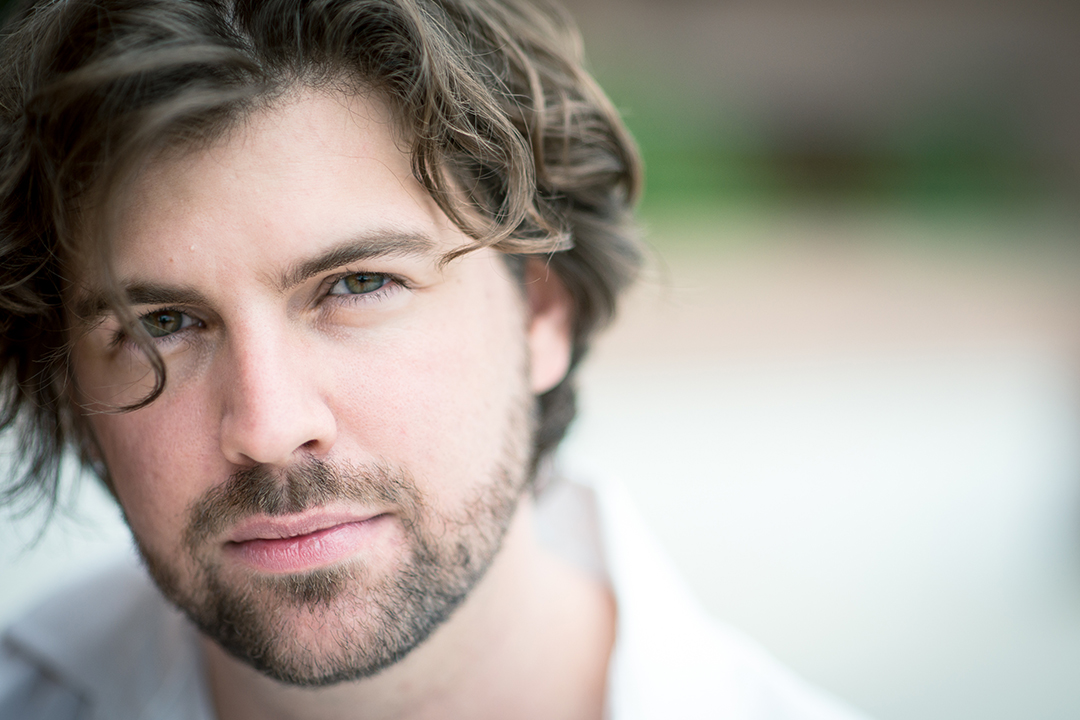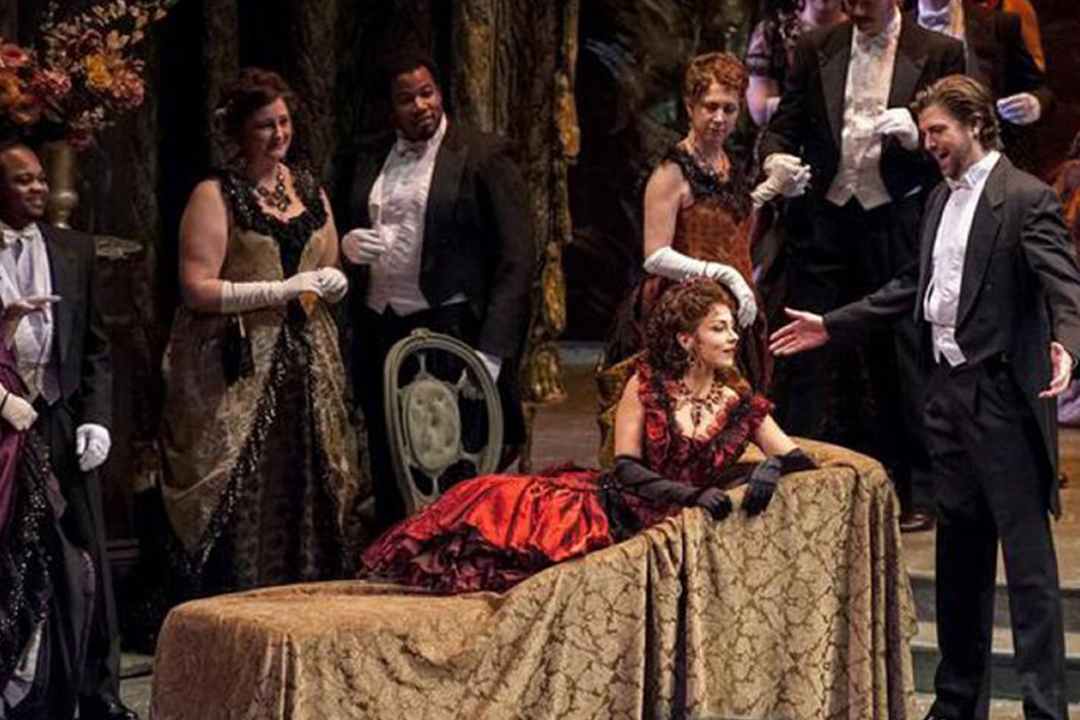By John DiConsiglio
Opera singer Zach Borichevsky, BA ’06, has been a Romeo in Chile, an Eisenstein in Cincinnati and an Alfredo from Verdi’s La traviata in cities from Knoxville to Seattle to Glyndebourne, U.K. He’s performed Tchaikovsky in Tucson and Puccini on stages in Finland, London and New York.
A political science and music major at Columbian College, Borichevsky envisioned himself in a different role: As Josh Lyman, the president’s legislative assistant in TV’s The West Wing. Throughout his time at GW, he performed in Music Department recitals, Chamber Choir concerts and gigs with the emo-a cappella group Emocapella. But he assumed he’d end up with a law degree and a career on Capitol Hill, closer to the Oval Office than an opera house.
“I was in an opera before I ever saw an opera,” Borichevsky laughed.
After acing the LSATs and exploring law school options, Borichevsky took what he called a “personal inventory” of his years at GW and discovered that his favorite memories all involved music and theater—from performing Stephen Sondheim’s Assassins with the Generic Theatre, GW’s oldest student theatre company, to seeing Mozart’s Idomeneo at the Washington Opera with his then-voice teacher, Music Department Chair Robert Baker. “I realized I was happiest around music,” he said. “So I thought: ‘OK, let’s give this opera thing a try.’”
That revelation led Borichevsky from GW to Yale School of Music to the Academy of Vocal Arts in Philadelphia—and to a career in opera that has garnered curtain calls from international audiences and accolades from critics. Opera Magazine praised Borichevsky’s “seductive, ringing” voice and Opera News highlighted his “dashing good looks, soft-eyed charm and gleaming tenor.” After appearing twice at the world-renowned Metropolitan Opera in New York last year, his 2017 schedule includes a return to GW as part of the Music Department’s Stanley & Evelyn Yeskel Memorial Concert Series in April.
“The groundwork for my music career was laid at GW,” he said. “People like Robert Baker and [Associate Professor of Music] Douglas Boyce were my main influences and introduced me to everything I know about music theory and performance. They showed me what music can be and started me on this path.”
Never an opera lover as a child, Borichevsky was raised on his father’s eclectic record collection, with ’60s rock and roll stacked alongside Pavarotti and Andrea Bocelli CDs. A high school music coach was the first to identify Borichevsky’s striking tenor voice—a trait that gives him an advantage in the competitive professional opera world. “My voice type is at once one of the rarest and also one of the most popular in opera,” he said. With few young men able to hit the high tenor notes, Borichevsky often finds himself in contention for leading-man roles like his favorite part, the romantic Rodolfo in Puccini’s La bohème.
Still, Borichevsky’s road to opera stardom hasn’t been an easy one. With five years of postgraduate training under his belt, Borichevsky says he’s been in school longer than most doctors. And, despite the standing ovations, an opera singer’s career requires as much training and discipline as an athlete’s. Borichevsky estimates that he spent only seven days at his Philadelphia home last year. He is typically on the road for weeks, rehearsing and performing in venues from the Met and the London Coliseum to hidden gems like Milwaukee’s Skylight Music Theatre. In addition to working with musical directors at each stop, he schedules sessions with a vocal coach several times a year and keeps both his voice and his physique in peak shape with regular exercises. He equates singing with a garden. “To keep your vocal technique sharp you have to prune it, water it and maintain it on a daily basis,” he said, noting that he even tries to limit vocal cord-straining conversations when performing a role.

Zach Borichevsky. (Photo: Simon Pauly)
In fact, Borichevsky greatest on-stage fear isn’t a sore throat—it’s forgetting his lines in front of a packed house. He’s blanked on Italian librettos before, only to remember them a second before they escape his lips. “Muscle memory takes over and the words come back to you,” he said, “but those are a terrifying few seconds.”
More often, critics say Borichevsky is a picture of confidence in the spotlight, even in his hardest roles like Strauss’ Die Fledermaus (“I’m pretty convinced that Strauss hated tenors,” he joked) or hitting the all-but-unreachable high-C in his signature La bohème aria. “There’s an excitement, a tension, in good opera that makes it as precarious for audiences as watching a sporting event. They are on the edge of their seats wondering, ‘Will he make that note or not?’” he said. “It's the same reason you go to operas or Nascar races—to see people do difficult things and make them look easy.”


